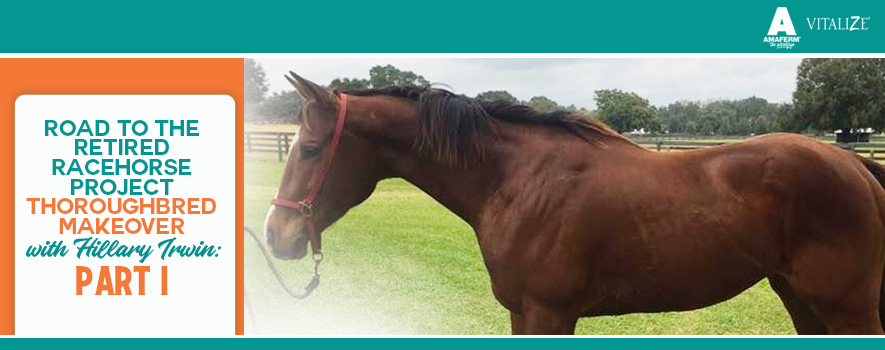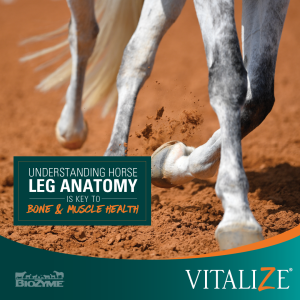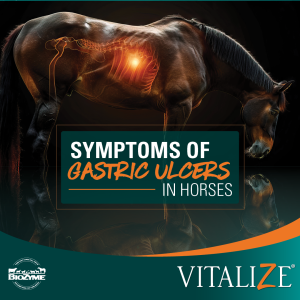
Imagine being a young Thoroughbred horse; you are three-years old and already have run your last race. What is your purpose now? You’ve trained for speed, but still have lots of good years left in you.
Luckily for young horses like these there are compassionate trainers like Hillary Irwin. Irwin began “restarting” off-track Thoroughbreds in her early teens, and to-date has trained at least 20 to compete in alternate disciplines like eventing, hunter jumper and dressage. This year, she will train two horses, “retired” Thoroughbreds through the Retired Racehorse Project and compete at the Thoroughbred Makeover, Oct. 2-5 in Lexington, Ky.
The mission of the Retired Racehorse Project, according to its website is to: “facilitate placement of Thoroughbred ex-racehorses in second careers by increasing demand for them in equestrian sports and serving the farms, trainers, and organizations that transition them.” Trainers have 10 months or less to train these former racehorses in one of 10 disciplines before the fall competition at the Kentucky Horse Park. The winner in each discipline competes for the coveted title of “America’s Most Wanted Thoroughbred” (as determined by audience text-messaging votes).
“This is my business. My goal for all of them (horses), is to make sure they are trained, and they are useful to someone always,” Irwin said. “I want to make sure they have the tools to make them useful for people so they can be resold, and they have a purpose so they can be trained so the majority of people who event can get on them and be fine. They are not difficult horses. They have good ground manners, they have good manners at shows, they haul well, they are good for vet and the farrier, and they are fun to ride.”
This is the second time Irwin has competed in the Retired Racehorse Project. She and her horse, Nutello, claimed second place in the eventing in 2015. This year, there are 673 trainers entered in competition, although the horses and their events don’t have to be entered or declared until Summer.
In keeping the competition fair, none of the horses in this year’s competition can be ridden or worked with prior to Dec. 1, 2018, and all horses must have raced after July 1, 2017. Irwin said that works great into her training program, where she likes to give each of her Thoroughbreds at least two months off prior to working with them. When she got her new horse, Yogi last spring, he was coming off an injury, so he was doctored, hauled up to her grandparents’ in North Carolina and turned out to a field to rest, relax, run and “just be a horse” for the past seven months. Irwin has just started riding him, and she is anxious to see what he can do.
In addition to Yogi, she is also training another gelding, Bill. Although she hadn’t met Bill at the time of the interview, she said she has been fortunate to get horses from good farms where they are well-taken care of, and she was excited to meet this young horse and start his training.
Both her horses for the Retired Racehorse Project are 4-year-olds, which Irwin said is the perfect age since the eventing discipline doesn’t allow horses under 4 to compete. She will train them to compete in eventing, and perhaps one other discipline for the competition, likely hunter jumper or maybe dressage.
Irwin said she is fortunate to live in Ocala, Fla., where there are a number of unrecognized shows in the area starting in April. These shows will give the less experienced horses some good practice at a local, low-cost level; and even if she chooses not to compete on one or either of them at a particular show, she will haul them for the experience.
“Even if they are not competing, I will still haul them to hang out for the day, so they start to realize there isn’t a racetrack every time they get off the trailer. The more you get them off the farm, the easier they are to deal with,” Irwin said.
Keeping her horses healthy is of upmost importance to Irwin. That is just one reason she allows such a long “break” before the retraining process. She also knows the more her horses get to be outside and just be horses, the better it is for their digestive and mental health, two primary areas of concern for horse owners and trainers.
“Yogi has had time to be a horse, run around in the field, eat flowers and relax. I do this for their stomach to make sure they don’t have ulcers, and make sure they are healthy and happy. Horses that are still allowed to be treated a little bit more like horses are a more mentally stable than the other ones,” she said.
Another way that Irwin makes sure her horses keep healthy is to give them Vitalize® Equine Digest More® Plus. Vitalize Digest More Plus is a pelleted top-dress that contains Amaferm® for increased digestibility, MOS for sequestering pathogens, and biotin and zinc for coat and hoof health.
The combination of adequate exercise and Vitalize nutrition has helped keep colic away from her horses, as she has had no trouble. She can’t say the same thing for the hand she broke this winter, when she was schooling a young horse. But, with caution and good horses like Yogi and Bill, she should be able to start competing again in April and get the brace off her hand in May.
Yogi is a bay gelding with four white socks and a white star. He measures 16 hands. Bill is slightly taller, 16.1, a chestnut with a white star.
Although Irwin buys these horses to train, she also competes on them. She knows she can’t keep every one of them she trains, but they are not always readily for sale. She likes to make sure the horses she has trained will be sold to a good home where they will be ridden and competed on by someone as caring as she is, someone with a heart and a passion. And so, come October, they will likely return to their home in Florida.
Irwin is one of the newest Vitalize ambassadors and we’ll be following her road to the Retired Racehorse Project during the next eight months.

